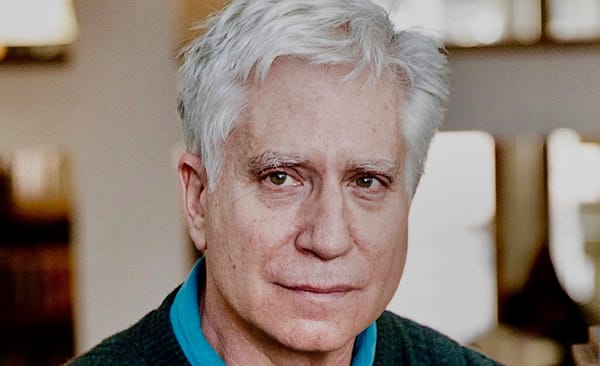The Rural We: Jeffrey Levine
The publisher of Tupelo Press had careers as a musician and a lawyer before he became a poet and publisher.

The publisher of Tupelo Press had careers as a musician and a lawyer before he became a poet and publisher.

Jeffrey Levine believes that words can change the world. The founder and publisher of the 20-year-old North Adams, Mass.-based Tupelo Press admits it’s “wild and rewarding to bring great authors and poets into print.” Tupelo Press boasts an impressive list of authors and poets including Aimee Nezhukumatathil, Ilya Kaminsky, and Maggie Smith. Levine, himself, is a published poet who has earned 14 Pushcart nominations. He is the author of three poetry books: “Rumor of Cortez,” nominated for a 2006 Los Angeles Times Literary Award in Poetry, “Mortal, Everlasting,” which won the 2002 Transcontinental Poetry Prize, and “At the Kinnegad Home for the Bewildered.”
My love for books started at the library as a child. I would bring home a stack of books, spread them out on my bed, and open to a random page and start reading. Books offered an entryway into other worlds.
I was a latecomer to the field of publishing. By the time I decided to earn an MFA in writing, I had already had two careers. I was a professional musician, a clarinetist with the Buffalo (New York) Philharmonic and the New York City Opera Orchestra, and also a lawyer. I entered the Warren Wilson MFA program in Swannanoa, North Carolina when it was one of the first low-residency programs in the country. And I started Tupelo in 1999, after graduating with my MFA.
I really had no clue what I was doing when I started the press. I rented a small space above the post office in Walpole, New Hampshire, and basically put in a phone and desk. And then I called people and asked, “How do I do this?” And I started to find manuscripts.
We have a lean operation at Tupelo. Publishing is a tough nut to crack. It’s a labor of love. It’s well-known that literature isn’t big money. For instance, if you sell a book for $20 you’re probably making about 50 cents on it. If a book doesn’t sell, it’s sent back to the publisher.
Facebook and social media really changed things in the business. With social media, it became possible to amass a culture of readers and writers on your own and to reach out to them. You could post something daily about your book for people who are reading Facebook. It’s a great democratizer. It’s an enormously powerful way of connecting with people. We can now reach thousands of people who might want to buy a particular book. Our business is to get books out into the world, to enrich someone.
The production of books is up every single year. People like books, they like the feel of them, the smell of the paper, the artifact, you can underline and write notes in the margins. It’s something people want. Someone reads Goodnight Moon to you as a child and you want that book. It’s pleasurable to read. Books are art, and art is worth supporting. I believe that books are a permanent part of our landscape.
Living and working in the Berkshires is just incredibly beautiful — it’s spellbinding. Right now, I’m watching a flock of turkeys in my yard. It’s also a place alive with the arts: dance, music, theater. I love Berkshires winters, the fall, the summer… every season. I’ve lived in the city, and after I came here I never looked back.








